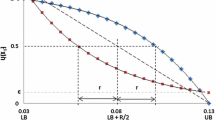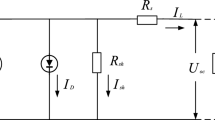Abstract
As an important part of demand-side management, residential demand response (DR) can not only reduce consumer’s electricity costs, but also improve the stability of power system operation. In this regard, this paper proposes an optimal scheduling model of household appliances for smart home energy management considering DR. The model includes electricity cost, incentive and inconvenience of consumers under time-of-use (TOU) electricity price. Further, this paper discusses the influence of inconvenience weighting factor on total costs. At the same time, the influence of incentive on optimization results is also analyzed. The simulation results show the effectiveness of the proposed model, which can reduce 34.71% of consumer’s total costs. It also illustrates that the total costs will be raised with the increase in inconvenience weighting factor. Thus, consumers will choose whether to participate in DR programs according to their preferences. Moreover, the result demonstrates that incentives are conducive to shifting load and reducing the consumer’s total energy costs. The presented study provides new insight for the applications of residential DR.








Similar content being viewed by others
References
Aalami H, Yousefi GR, Moghadam MP (2008) Demand response model considering EDRP and TOU programs. In: Transmission and distribution conference and exposition, 2008. T&D, IEEE/PES, pp 1–6
Ardakani FJ, Ardehali MM (2014) Novel effects of demand side management data on accuracy of electrical energy consumption modeling and long-term forecasting. Energy Convers Manag 78:745–752
Baboli PT, Eghbal M, Moghaddam MP, Aalami H (2012) Customer behavior based demand response model. In: Power and Energy Society General Meeting, pp 1–7
Derakhshan G, Shayanfar HA, Kazemi A (2016) The optimization of demand response programs in smart grids. Energy Policy 94:295–306
Ericson T (2009) Direct load control of residential water heaters. Energy Policy 37:3502–3512
Fan JL, Tang BJ, Yu H et al (2015) Impacts of socioeconomic factors on monthly electricity consumption of China’s sectors. Nat Hazards 75:2039–2047
Farahani SSS, Tabar MB, Tourang H, Yousefpour B (2012) Using exponential modeling for DLC demand response programs in electricity markets. Res J Appl Sci Eng Technol 4:749–753
Heydarian-Forushani E, Golshan MEH, Moghaddam MP et al (2015) Robust scheduling of variable wind generation by coordination of bulk energy storages and demand response. Energy Convers Manag 106:941–950
Ji HY, Bladick R, Novoselac A (2014) Demand response for residential buildings based on dynamic price of electricity. Energy Build 80:531–541
Ju L, Li H, Zhao J et al (2016) Multi-objective stochastic scheduling optimization model for connecting a virtual power plant to wind-photovoltaic-electric vehicles considering uncertainties and demand response. Energy Convers Manag 128:160–177
Li N, Chen L, Low SH (2011) Optimal demand response based on utility maximization in power networks. In: Power and Energy Society General Meeting, pp 1–8
Liu LC, Wu G, Zhang YJ (2015) Investigating the residential energy consumption behaviors in Beijing: a survey study. Nat Hazards 75:243–263
Mallette M, Venkataramanan G (2010) Financial incentives to encourage demand response participation by plug-in hybrid electric vehicle owners. In: Energy conversion congress and exposition, pp 4278–4284
Moghaddam MP, Abdollahi A, Rashidinejad M (2011) Flexible demand response programs modeling in competitive electricity markets. Appl Energy 88:3257–3269
Mohsenian-Rad AH, Leon-Garcia A (2010) Optimal residential load control with price prediction in real-time electricity pricing environments. IEEE Trans Smart Grid 1:120–133
Rassia ST, Pardalos PM (2012) Sustainable environmental design in architecture: impacts on health, vol 56. Springer, Berlin
Rassia ST, Pardalos PM (2014) Cities for smart environmental and energy futures. Springer, Berlin
Rassia ST, Pardalos PM (2015) Future city architecture for optimal living. Springer International Publishing, Cham
Rastegar M, Fotuhi-Firuzabad M, Aminifar F (2012) Load commitment in a smart home. Appl Energy 96:45–54
Sanjari MJ, Karami H, Yatim AH, Gharehpetian GB (2015) Application of hyper-spherical search algorithm for optimal energy resources dispatch in residential microgrids. Appl Soft Comput 37:15–23
Shao S, Pipattanasomporn M, Rahman S (2013) Development of physical-based demand response-enabled residential load models. IEEE Trans Power Syst 28:607–614
Song M, Zhang G, Fang K, Zhang J (2016a) Regional operational and environmental performance evaluation in China: non-radial DEA methodology under natural and managerial disposability. Nat Hazards 84:1–23
Song M, Zheng W, Wang Z (2016b) Environmental efficiency and energy consumption of highway transportation systems in China. Int J Prod Econ 181:441–449
Torriti J (2014) A review of time use models of residential electricity demand. Renew Sustain Energy Rev 37:265–272
Tsui KM, Chan SC (2012) Demand response optimization for smart home scheduling under real-time pricing. IEEE Trans Smart Grid 3:1812–1821
Wu Z, Zhou S, Li J, Zhang XP (2014) Real-time scheduling of residential appliances via conditional risk-at-value. IEEE Trans Smart Grid 5:1282–1291
Xie N, Pearman AD (2014) Forecasting energy consumption in China following instigation of an energy-saving policy. Nat Hazards 74:639–659
Zhang J, Xia X (2007) Best switching time of hot water cylinder-switched optimal control approach. In: Africon, pp 1–7
Zhou K, Yang S (2015) Demand side management in China: the context of China’s power industry reform. Renew Sustain Energy Rev 47:954–965
Zhou K, Yang S (2016) Understanding household energy consumption behavior: the contribution of energy big data analytics. Renew Sustain Energy Rev 56:810–819
Zhou K, Fu C, Yang S (2016a) Big data driven smart energy management: from big data to big insights. Renew Sustain Energy Rev 56:215–225
Zhou K, Yang S, Shao Z (2016b) Energy internet: the business perspective. Appl Energy 178:212–222
Acknowledgements
The authors would like to thank Prof. Panos M. Pardalos for his valuable comments and suggestions. We acknowledge the financial support from National Natural Science Foundation of China (No. 71501056), China Postdoctoral Science Foundation (No. 2017M612072), Fundamental Research Funds for the Central Universities (No. JZ2016HGTB0728), Anhui Provincial Natural Science Foundation Program (No. 1608085QG165) and the Foundation for Innovative Research Groups of the National Natural Science Foundation of China (No. 71521001).
Author information
Authors and Affiliations
Corresponding author
Rights and permissions
About this article
Cite this article
Lu, X., Zhou, K., Chan, F.T.S. et al. Optimal scheduling of household appliances for smart home energy management considering demand response. Nat Hazards 88, 1639–1653 (2017). https://doi.org/10.1007/s11069-017-2937-9
Received:
Accepted:
Published:
Issue Date:
DOI: https://doi.org/10.1007/s11069-017-2937-9




